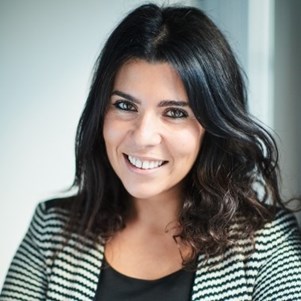17 June 2021
Hearing of Loredana Teodorescu, Secretary-General of WIIS Italy – Women In International Security

Loredana Teodorescu, PhD in European Union Law, is an expert in EU governance, policies and institutions, primarily focus on migration and international cooperation. Since 2020 she has been the Secretary-General of the Italian antenna of Women In International Security (WIIS), a global network dedicated to promoting women’s leadership and professional development in the field of international affairs, peace and security. She is also Head of European and International Affairs at the Luigi Sturzo Institute, Associate Researcher at the Wilfried Martens Centre for European Studies in Brussels, and Visiting fellow at the European University Institute.
Previously, she collaborated with various research centres and think tanks, including the Altiero Spinelli Centre of Excellence at Roma Tre University, taught at the Master in European Citizenship and Euro-Mediterranean Integration at the same University, and worked for the Ministry of Foreign Affairs during the Italian EU Presidency in 2014.
She is member of several networks of European policy experts and of the Academy of Law and Migration (AdiM); and participates in the activities of the Fundamental Rights Platform of the European Agency for Fundamental Rights and in the Consultative Forum of EASO (European Asylum Support Office). She was included among the 100 Italian experts in international politics, within the related initiative.
Hearing summary
The Secretary General of Women in International Security – Italy (WIIS – Italy) was heard today. According to Loredana Teodorescu, the Conference provides a unique opportunity not only to listen to EU citizens and to concretely relaunch the process of European integration, but also to stimulate a European public debate, to relaunch a generational dialogue and to strengthen the link between the world of institutions and politics, on one side, and the world of research and the community of experts on the other side, thus giving birth to jointly conceived practices that could be consolidated over time. Without ruling out any a priori development, the Conference cannot fail to perform a broader reflection on the EU in order to equip it with the necessary tools and powers to meet the challenges of our time.
Common EU policies such as migration policy must be strengthened in order to meet citizens’ needs and interests. Multiple issues need be tackled and revolve around solidarity and shared responsibility, and a more concrete approach, investing on expertise an enhancement and promoting opportunities to foster mutual understanding. The topic is intertwined with the role of the EU in the world, which the Conference should address in order to highlight and help overcome the internal dynamics that often paralyse its external action (e.g., unanimous decision-making mechanism); to stimulate a serious debate on priorities and strategy, and enable for more dynamic and ambitious action on the part of the European institutions. In both cases, it is a matter of highlighting how short-sighted the lack of coordinated and/or common policies is in increasingly complex world, and encouraging gradual perception of European added value as a national interest.
Eventually, it is important for the EU to step up its action in order to make principles such as gender equality a reality. The issue is not included among the Conference priorities, despite the negative impact of the pandemic and although the European Institute for Gender Equality (EIGE) estimates it will take at least 60 years to achieve equality in Europe. Women's participation in politics, institutions, public life and the world of work is a catalyst for transformative change that can benefit the whole of society; it has an important economic impact, and positively moves world peace and security. The EU should set an example by promoting a significant presence of women within its institutions (institutions, agencies, diplomatic delegations, missions), including at senior levels; by actively supporting gender policies through targeted investments, incentives, programmes, and clauses; and by integrating a gender perspective into all stages of decision-making and its foreign policy.
